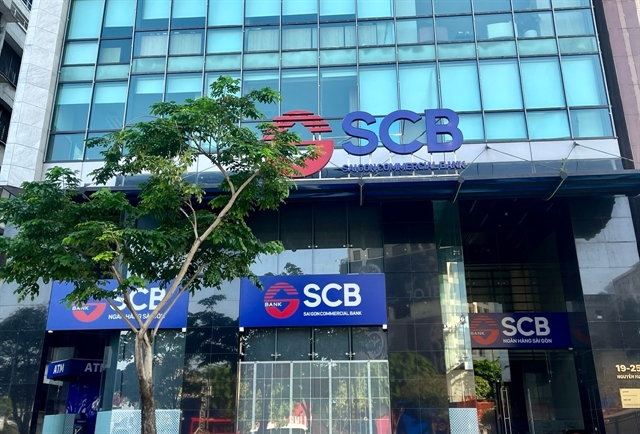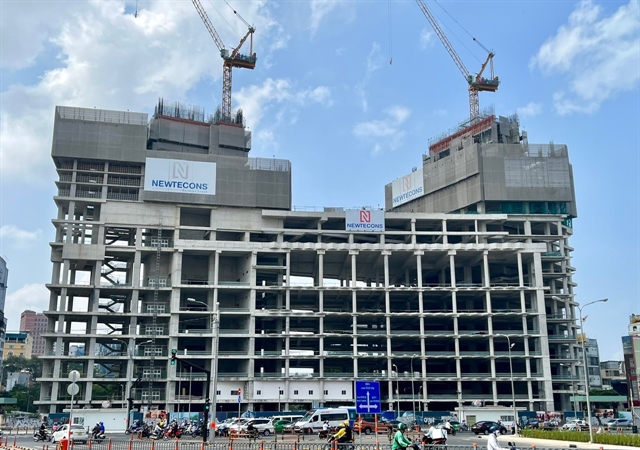 Politics & Law
Politics & Law

 |
| The headquarters of Saigon Commercial Joint Stock Bank (SCB) in HCM City’s downtown District 1. Experts demand SCB be held accountable for the bond fraud, given a majority of the victims were the bank’s depositors. — VNS Photo Bồ Xuân Hiệp |
Bồ Xuân Hiệp
HCM CITY — The Saigon Commercial Joint Stock Bank (SCB) is facing accusations of a massive financial fraud scheme against its customers in what has been considered the most extreme fraud case in the history of Việt Nam.
At least 35,000 bondholders have been identified as victims of the scam, the police have alleged.
Owned by Trương Mỹ Lan, also the chairwoman of the troubled Vạn Thịnh Phát Group, SCB is accused of being involved in a bond fraud scheme where counterfeit bonds were issued to investors through fake companies under the group.
The scam was uncovered at the end of 2022, with Lan being accused of masterminding the scheme to target SCB’s depositors, according to the police.
Since Lan’s arrest, victims have reportedly not received any interest or principal payments on their investments through SCB, the largest private lender by assets in Việt Nam.
The victims were misled by SCB personnel, who reassured them the bonds were “as safe as a savings account product” due to Trương Mỹ Lan’s ownership of the bank as the chairwoman of the group.
Lê Thu Thuỷ, 51, of HCM City, said she had unintentionally purchased corporate bonds instead of depositing money in a savings account.
“I never intended to purchase corporate bonds. I just wanted to deposit money in a savings account,” she told Việt Nam News.
In response, SCB stated “they were only acting as an intermediary in selling the bonds and did not guarantee any repayment to investors.”
However, experts stated that SCB may be held accountable for “failing to provide accurate and comprehensive information about the risks associated with the bonds.”
If SCB is found to be in violation of regulations while selling the bonds, they could be legally obligated to repurchase them at any cost, the experts noted.
Investigation findings
A thorough investigation conducted by the police at the end of 2022 has revealed that Trương Mỹ Lan orchestrated a scheme to manipulate SCB into issuing fake bonds since 2018 in order to address the lender’s financial woes.
The fraudulent activities resulted in losses of over VNĐ30 trillion for more than 35,000 victims, according to the police.
Lan has admitted to collaborating with former executives of SCB, Tân Việt Securities and Vạn Thịnh Phát to develop a 'specific plan' to fabricate bonds through bogus companies within the group.
The lender's former CEO was found to have conducted 'training sessions' for over 2,500 sales staff at various branches nationwide on how to defraud customers, the police stated.
Initially denying any involvement, Lan finally admitted to her wrongdoings in the scam and promised to repay the victims, the police added.
They have already seized millions of dollars in assets connected to Lan in a bid to repay the victims affected by the fraud.
Lan and other individuals, including her Chinese husband, are also accused of engaging in other illegal activities such as transporting and laundering billions of dollars across borders over the past ten years.
The scam has led to a loss of market confidence, causing a halt in bond issuance and causing overall market instability.
Experts caution it may take years to address all of the consequences of the scandal as one of Southeast Asia’s worst financial crimes.
 |
| The construction of a building near Bến Thành Market, believed to be owned by Viva Land, a subsidiary of Vạn Thịnh Phát Group, stalled at the end of 2022 following the arrest of Trương Mỹ Lan. The police have said the money and assets recovered from the scandal will be returned to victims. — VNS Photo Bồ Xuân Hiệp |
Lan and her family founded Vạn Thịnh Phát in 1992 as one of the country’s prominent real estate companies, with luxury properties in major cities such as HCM City and Hà Nội.
While Lan’s arrest has exposed the massive scale of the fraud, experts have warned the scandal is just the “tip of the iceberg” in the financial sector, raising concerns about the cross-ownership issue in credit institutions in Việt Nam.
The Government has announced plans to tighten bank ownership regulations to prevent future scandals. — VNS




